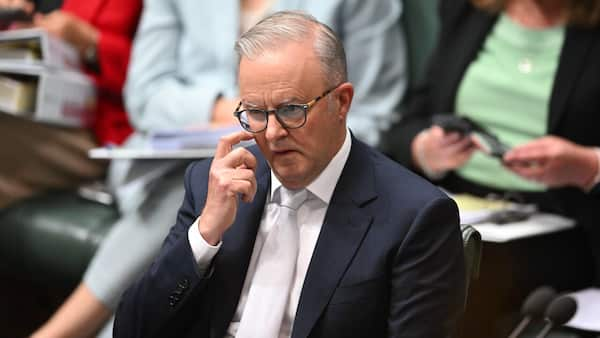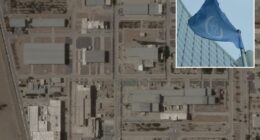Share this @internewscast.com
“We don’t want to see an escalation of tariffs, they are an act of economic self-harm, they are very damaging to the global economy, and we [Australia] won’t be immune from that,” he told the ABC on Thursday morning.
So, what effects could these tariffs have, and why has Trump introduced them?
Will the tariffs increase prices?
“It’s a component of many other things too,” he said, as steel and aluminium are used in machinery and canned goods that Australia imports from the US.
While there may be a price hike for some canned products available in supermarkets, Harcourt said the bigger development to look out for would be how Australian steel producers adapt.
What about Australian steel?
“But our exporters are among the best in the world. We’re confident that they can find good markets, good reliable markets for wonderful Australian steel and aluminium.”

“There may be some growing pains or costs in adjusting, but Australia is a very good steel, iron ore and aluminium exporter, so we will still be okay with partners in Asia and the Pacific,” he added.
Why has Trump imposed steel and aluminium tariffs?
“Our steel and aluminium industries are coming back like never before,” he said in a post on Truth Social.
Harcourt said he believes world leaders are using tariffs as a tool to assert their power, citing Chinese President Xi Jinping’s decision to impose tariffs on Australian wine and grains a few years ago as an example.














